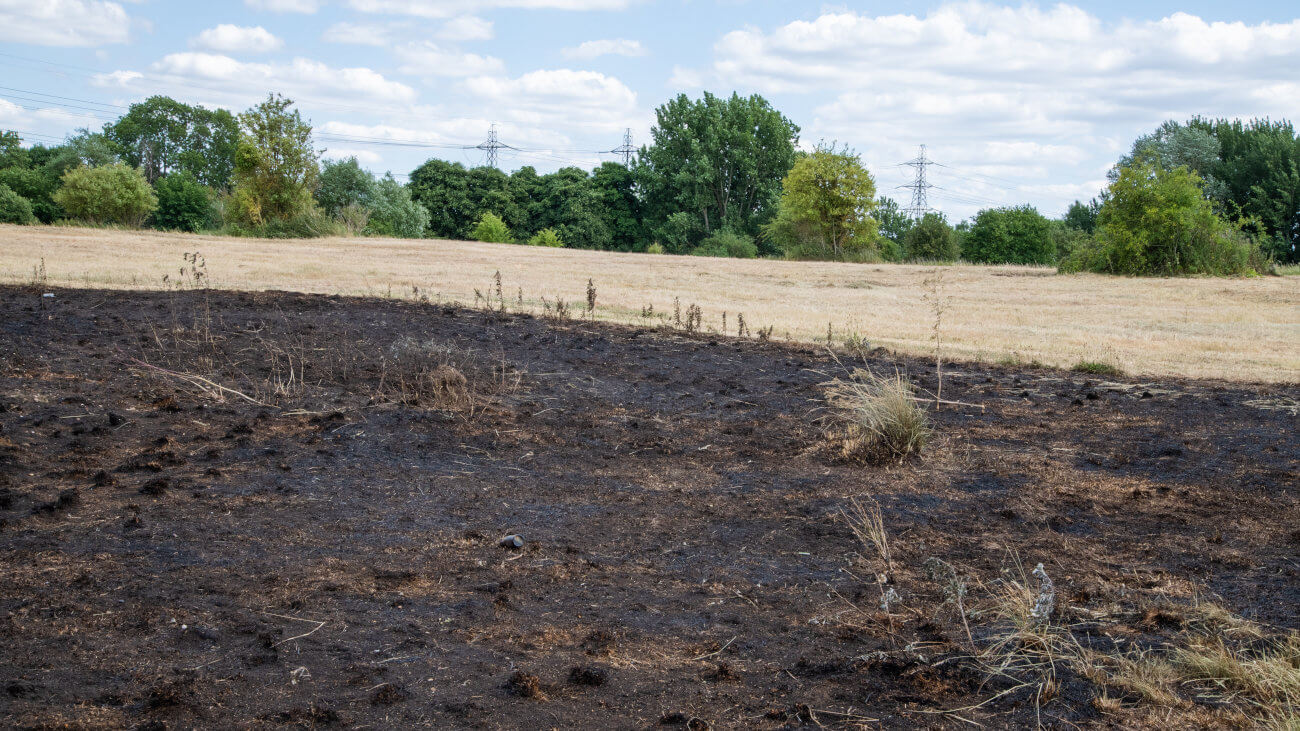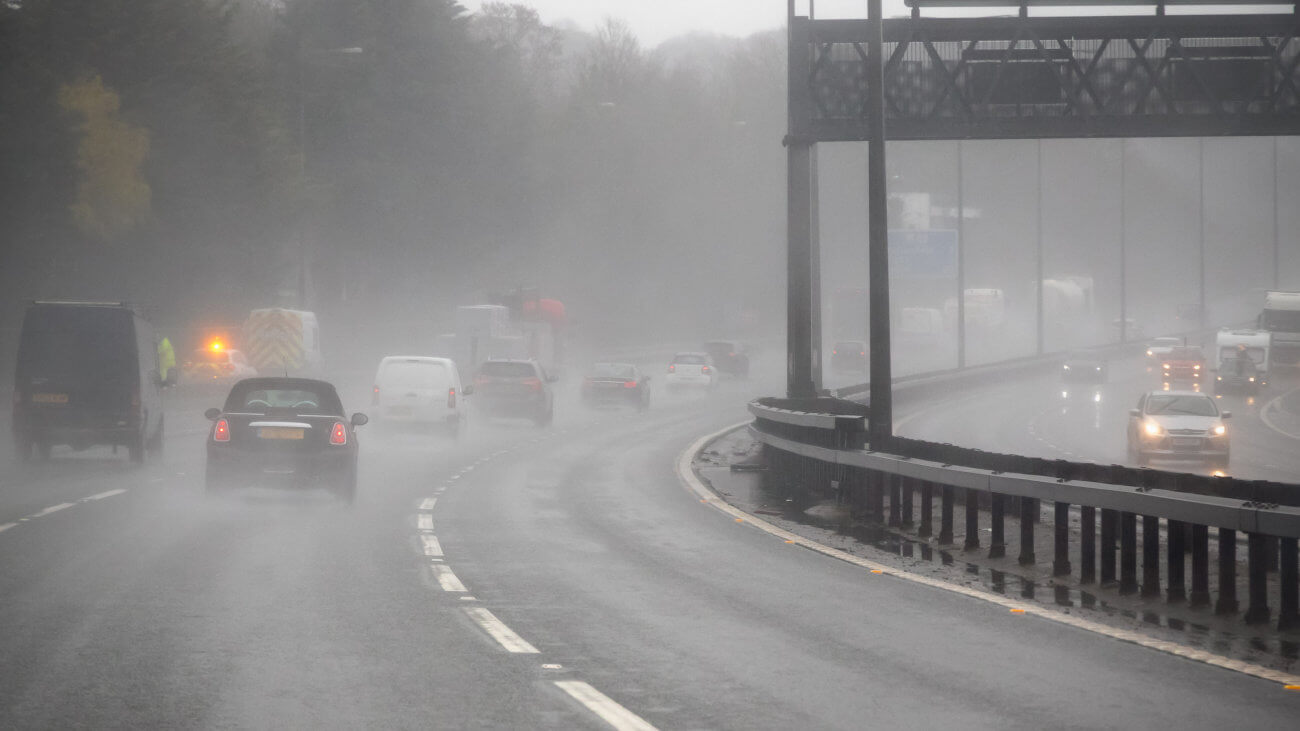Understanding Transport for London’s interdependent climate risks

Project overview
Enabling London’s transport system to assess shared climate risks
Mott MacDonald has worked with Transport for London (TfL) to help develop its first system-wide understanding of the interdependent climate risks that its transport network shares with other infrastructure providers.
In addition to meeting a new regulatory requirement, the work will improve how TfL and its stakeholders, such as London’s boroughs, collaborate to design, fund and deliver more effective adaptation to address growing climate risk and its impacts.
TfL operates London’s public transport network and shares responsibility for managing the city’s road networks with National Highways and 33 local authorities.
Through the Adaptation Reporting Power (ARP), the government can require infrastructure and public services providers to periodically report on their climate risks and progress toward adapting to climate change. This enables the UK to meet the legal requirements of the 2008 Climate Change Act. The ARP is now in its fourth reporting cycle (ARP4). For this cycle the Government’s independent advisor on climate risk and adaptation, the Climate Change Committee (CCC), recommended that organisations should also include reporting on climate risk interdependencies.
Alongside transport, other infrastructure assets and utility providers such as electricity, gas, telecommunications and water are interwoven to provide essential services for London, including to its transport networks.
When infrastructure assets are impacted by the adverse consequences of climate change, such as increasingly frequent and severe weather events, the effects can quickly cascade from one sector, asset or service to another. For example, heavy rainfall during a storm can result in sudden surface water flooding, which could damage power or telecommunication infrastructure, which then leads to repercussions for the transport sector. In this scenario, traffic light or signalling failures could then follow, resulting in road or station closures and delays to people and goods getting where they need to be. This could cause knock-on effects for other public services, including healthcare and education.
Each asset and service depends to some extent on the other, meaning there are interdependent risks.
To better respond to the interdependent risk assessment requirements ahead of an ARP4 submission, Mott MacDonald supported TfL to deliver this type of assessment for the first time. The work used systems-thinking to guide the approach to stakeholder engagement and shape a successful climate risk assessment.

Mapping and engaging
Systems thinking considers all the components, such as activities, policies, organisations and people, that interact to deliver an outcome. An area where Mott MacDonald helped TfL to innovate was in providing the processes, tools and expertise required to successfully and comprehensively consult with its stakeholders across this system. This enabled a shared understanding and map of the system to be built, which was then collaboratively explored to review the relevant interdependencies.
Mott MacDonald technical director for systems thinking Brendan Bromwich says: “Systems thinking is about pooling the wisdom of all organisations engaged with a system and creating insights that draw on this new deeper collective understanding. A good participatory process really matters, because the work is about joining up people as well as joined up analysis.”
Mott MacDonald’s team used participatory systems mapping to structure stakeholder engagement and map the system. This was used to detail how the different functions of each system connect and interact through targeted online focus groups and in-person workshops, leveraging the collective insight of TfL’s stakeholders.
Having coordinated the creation of the system combined map, Mott MacDonald’s support then enabled identification of the different potential cascading climate risks for London’s land-based transport system and the services it depends on.
For example, by examining potential climate risks for the water sector and its interdependencies with London’s transport system, the project team reviewed the risk of an increase in pipe bursts as a result of climate change. This type of incident has the potential to cause further damage to transport assets or to disrupt services. Other interdependent risks were explored for a range of different assets and services with a relationship with London’s transport services. This included the power sector, telecommunications, environmental management and land use and planning.
According to TfL project manager Rebecca Powell, gaining this level of insight called for Mott MacDonald to work with a large range of stakeholders. She says that the team worked hard to get the right risk assessment information from each stakeholder in order to build the system map.
The participatory system mapping and identification of its interdependencies enabled Mott MacDonald and TfL to develop a digitally-based visual map of the system’s interdependencies. The mapping tool included interactive filtering tools, so its users could easily zoom in on a specific organisation or climate hazard, supporting in-depth analysis.

Climate risk assessment
Having established buy-in with TfL’s stakeholders and a comprehensive understanding of the transport system’s interdependencies, Mott MacDonald applied its expertise in climate risk assessment.
Underpinned by Met Office climate data to model relevant climate change scenarios for the 2050s and beyond, the team assessed the interdependent climate risks across the system. A risk rating was then developed, scored based on the likelihood and potential severity of climate hazards and impacts, was then developed.
This process explored how risks varied for the transport network and the services it requires. For example, reviewing the risks for telecommunications networks, it rated severe rainfall – both in single extreme weather events and over the course of seasons – as a key challenge. When it came to pipe bursts and the damage and disruption that can cause for transport assets and services, the most significant risks came from the weakening of pipes due to the greater variation in temperature conditions and drought. Mott MacDonald supported TfL to continue the risk assessment review with a stakeholder workshop. Combined with the system-wide interdependency map, the climate risk assessment enabled TfL to better understand and prioritise addressing the shared cascading climate risks, alongside the stakeholders it had engaged with throughout.
Our approach combined systems thinking and conventional analysis – we see that as the way to maximise the value of each part. We don’t just leave people with a messy map which emphasises what they already know. Instead, we use the mapping process to engage with the complexities, while delivering simple, clear outcomes. In this case a risk assessment and an action plan.Justin Brassett
Mott MacDonald project manager
Improving collaboration
As a result of the support Mott MacDonald provided to TfL, an action plan was produced with practical recommendations, which TfL has set out as part of its ARP4 report.
Over 52 potential actions to improve the resilience of London’s transport network were identified in the action plan. With Mott MacDonald’s support, TfL was able to set out whether actions for short term delivery in the next year or need to be taken in the medium term (two-to-four years) or long term (over five years).
In the short term, the report recommended actions such as collecting data on assets most at risk due to surface water flooding during maintenance visits, improving data sharing models and using digital twin technologies to explore how climate risk can affect assets and services.
An example of a longer-term recommendation was the need to investigate co-funding opportunities for better management of vegetation, which has the potential to improve the resilience of assets and reduce the risk to assets.
Developing the report with stakeholder buy-in throughout means that it has the potential to improve how TfL and its partners collaborate to seek funding for those recommendations and investment in adaptation. By better understanding the system and how other assets interact and share climate risk, the planned interventions have the potential to achieve more efficient and effective outcomes than if they were designed in isolation.
Underpinned by a thorough systems-thinking understanding of climate risks and interdependencies, Mott MacDonald supported TfL to successfully submit its ARP4 report to Defra, delivering on the CCC’s recommended requirements.
Rebecca adds: “We are consistently being asked by colleagues in the Department for the Environment, Farming and Rural Affairs (Defra), the Department for Transport, the London boroughs and other infrastructure owners if we can share this excellent project. This [interest] wouldn’t be the case if all the workshops and outputs hadn’t been so impressive.”
Subscribe for exclusive updates
Receive our expert insights on issues that transform business, increase sustainability and improve lives.


















